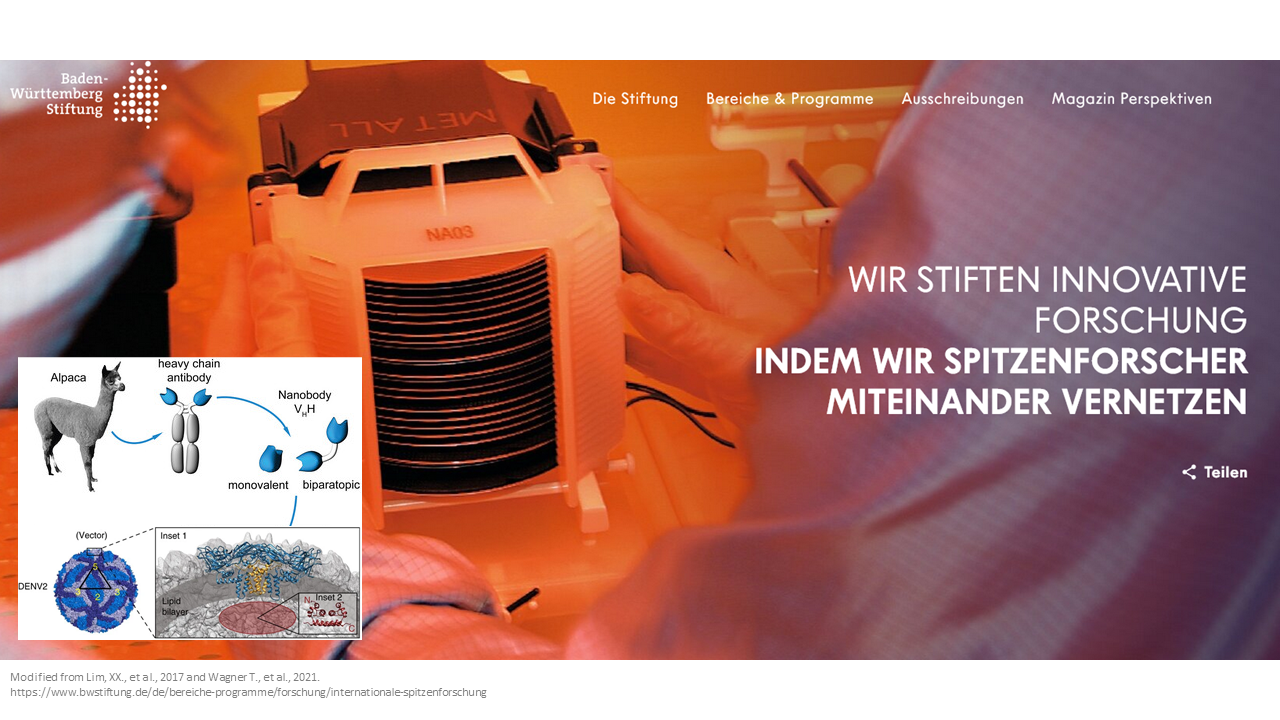Natalia Ruetalo receives funding for international research project

One of the Baden-Württemberg Foundation's goals is to bring international renowned researchers together. For this reason, the foundation regularly supports interdisciplinary, transnational research projects through its " Internationale Spitzenforschung " program. Dr. Natalia Ruetalo, group leader in the Molecular Virology Section (Prof. Schindler) has now successfully obtained funding for a research project in collaboration with Prof. Dr. Ulrich Rothbauer from Tübingen and Prof. Dr. Johan Neyts from Leuven (Belgium). Congratulations!
In their project, the researchers focus on the dengue virus (DENV). DENV is a flavivirus transmitted by mosquitoes. Currently, there is an estimation of 400 million new DENV infections per year. Due to several factors, including global warming, the geographical distribution of the insects transmitting the virus has expanded. Thus, the virus is more frequently transmitted to immune naïve populations that have never been infected before. To date, about half of the world's population is at risk of infection.
Currently, there is neither an antiviral therapy nor a widely available standard vaccination. In addition, four different DENV subtypes exist, which are not effectively neutralized by current vaccines and antibodies. In the worst case, antibodies against one subtype even lead to increased infection with another DENV type and subsequently to the dreaded DENV shock syndrome.
The current project focuses on the development of, so-called nanobodies. Like antibodies, they bind to virus particles and prevent the virus from infiltrating and multiplying in healthy cells. In addition, they are small, relatively easy to produce biotechnologically and, due to their structure, there is no risk of an amplifying effect on DENV infection. Together with colleagues, Dr. Ruetalo has already developed highly potent nanobodies that neutralize SARS-CoV-2 in a past project. The goal of the new project is now to develop nanobodies that can neutralize all four dengue virus subtypes. These nanobodies will then lead to a prototype for pharmacological studies to further improve efficacy and specificity. The project is now funded for three years.
